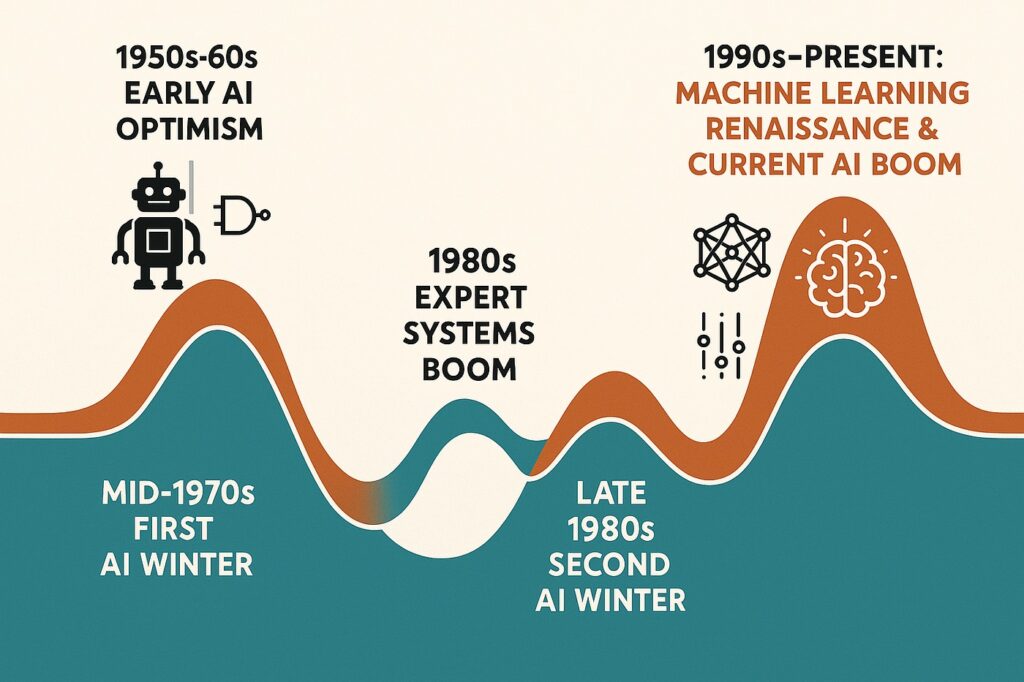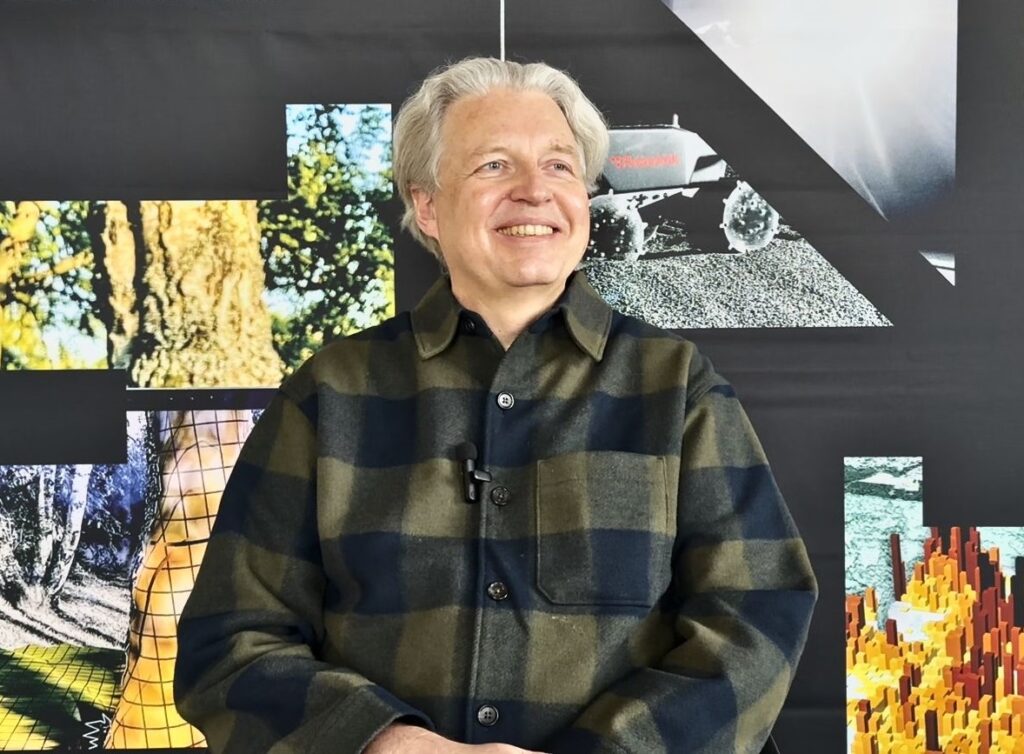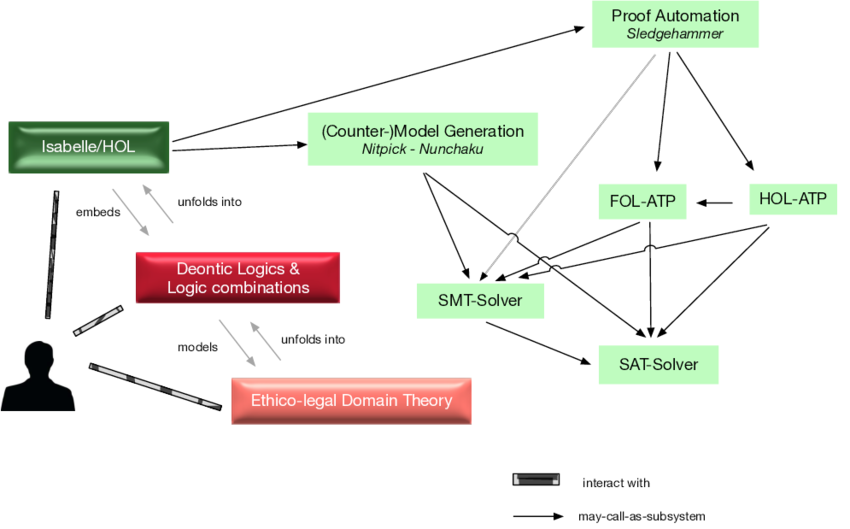BACK TO RESEARCH WITH IMPACT: FNR HIGHLIGHTS
As the FNR marks 25 years since its creation, we highlight 25 examples of FNR-supported research with impact.
Artificial intelligence (AI) has been a part of research long before it became part of everyday life. Leon van der Torre has spent over 30 years in the field – 20 of them in Luxembourg, where he has led projects with significant contributions in areas including reasoning, agency, social robotics, and legal and ethical aspects of AI.
Prof. Leon van der Torre’s research group is called ‘Individual and Collective Reasoning’, it focuses on the foundations of artificial intelligence.
“Our group goes beyond the AI people know nowadays. We are studying reasoning, agents, and multi agent organisations. We are particularly interested in the balance between individual and collective reasoning.” Van der Torre made an analogy to different countries in Europe: Each country has its own individual reasoning; one may prioritise wealth or environment. But at the EU level, there is collective reasoning, where we have to reason about the whole of Europe.
AI research has been happening for decades
Van der Torre reflects on his early inspiration for pursuing AI, noting, “When I started 30 years ago, I was inspired by science fiction movies. Nowadays, I still tell my students to watch more sci-fi. Today, when people think about AI, they mostly think about large language models like ChatGPT or Deepseek, but that’s just the beginning. When AI keeps developing toward human-level intelligence, it’s going to affect everything we do.”
Van der Torre recalls entering the field after the “AI summer” of the 1980s. He explains that expectations for the technology’s rapid progress were, in hindsight, overly optimistic.
“Back then, we expected things to be realised much quicker than it actually happened,” he admits. However, recent advancements in AI, particularly with natural language processing and deep learning, have rapidly accelerated development.
“Nowadays with all this money going into AI, things are developing much faster than they did over the past 30 years,” he notes, highlighting how the influx of investment is driving many new advancements. He envisions the next stage of AI development unfolding in three steps: “From interaction as chatbots can do now, then reasoning, which is starting to happen, then agency where systems can take actions, and finally collective reasoning, where agents can work together to build organisations.”
He anticipates these breakthroughs could come within five to ten years.In his 30 years in the field, van der Torre has seen the field shift from ambitious dreams to tangible innovations that are already transforming industries and everyday life.


Normative Multi-Agent Systems and Argumentation: A key area of research
Van der Torre also discusses how his work in legal informatics intersects with his AI research. He reflects on a central challenge in AI: how to integrate norms into agents so they follow rules and can also develop new norms, similar to how laws evolve in human societies. While compliance checking and monitoring —ensuring agents follow rules and checking their behaviour —have been well studied, norm generation —how agents can collectively shape the system —remains underexplored and complex, especially in the age of generative AI.
Van der Torre sees their work on developing models and logic systems for normative reasoning as a core part of their research success. Later, his work expanded to argumentation, which is also a field that captures the balance between individual and collective reasoning. He also emphasises his efforts in fostering the scientific community, particularly through editing handbooks on normative reasoning, argumentation, and legal AI, bringing together experts worldwide to define the state of the art. These efforts not only demonstrate his depth of expertise in the foundations of AI and its legal and ethical aspects, but also his ability to translate complex ideas into structured guidance, making him a valuable point of reference for organisations concerned with AI regulations and responsible deployment.
“The best way I describe normative multi-agent systems, typically, is that if you think about legal systems, there are different kinds of problems we need to solve. One is that there is a legal system, and an agent has to behave according to the legal system. We call this compliance checking which is the main problem we have in computer science. Then there is also the monitoring perspective. The monitors, like police, have to check that the agents actually behave. Compliance checking and monitoring get a lot of attention, but the legislative part, how norms are actually generated and tested, receives much less. How to generate norms for artificial multi-agent systems? And how can we individualise and contribute to the norms of the society? These are the key challenges in the real world, and even more difficult ones in AI systems. Particularly today, we live in the time of generative AI. Generating normative systems means that we let people work together or let AI systems work together, that's in a sense the most complicated part of the picture. ”Prof Dr Leon van der Torre Professor of computer science at the University of Luxembourg
From individual logical reasoning to interaction and communication between multiple agents
“My main success story is that we have developed logic systems, and later I started to work on argumentation. On the one hand, argumentation concerns individual logical reasoning; on the other hand, it is about the interaction and communication between multiple agents. Both of them are also very natural to be used in legal reasoning and AI ethics.”
“One model we developed is the Jiminy architecture. It is an ethical governor, where we combine normative reasoning and argumentation. More generally, we also developed a methodology for experimentation; we call it LogiKEy. It is a kind of sandboxing where we can actually test and experiment with theories.”

“From the social side of science, I’ve also been actively involved in shaping the field through editorial work. I’ve led the creation of handbooks by bringing together leading experts from around the world to discuss and define the state of the art. I contribute extensively to both journals and handbooks, which play a crucial role in setting shared standards and fostering a cohesive scientific community. ”Prof Dr Leon van der Torre Professor of computer science at the University of Luxembourg

LuxAI – seeds sown during an inspiring research stay
Van der Torre had a research stay in 2013 at Stanford as part of a grant from the FNR’s INTER Mobility programme. During this stay at what he notes is a university with an entrepreneurial mindset, he was inspired to take a similar approach in Luxembourg. This idea later evolved into the FNR JUMP (Proof of Concept) project PROCROB (programming cognitive robots), which blossomed into the start-up LuxAI, focused on providing cognitive robots to assist children with autism, while the robot QT is also used both for educational research and outreach purposes.
“Together with some students from the Robo-lab, we decided to just try it and started what became LuxAI. We were among the first to do this here, and although it wasn’t clear how it would go, it eventually worked out. Looking at things from the industry side — not just the academic side — has been very rewarding, especially seeing real-world impact, like how the QT robot supports autistic children. ”Prof Dr Leon van der Torre Professor of computer science at the University of Luxembourg
“In addition to its therapeutic use in the company, the QT robot also plays a valuable role in research and teaching. I insisted we keep one for research, even if it wasn’t commercially profitable. It’s now used in various projects, some with locally run large language models, and helps bring together different parts of AI in one system. We also had some outreach and teaching activities, like the Esch2022 pavilion and open days, where the robot supported public engagement. But it has also been part of research on explainable AI and personalised recommendation systems.”
“For the next ten years, I’d like to create one or two more success stories like that.”

Mentoring the next generation of AI researchers
Van der Torre has also played a pivotal role in mentoring the next generation of AI researchers. Since arriving in Luxembourg, he has supervised around 30 postdoctoral researchers, many of whom have successfully secured permanent academic positions. He takes it as a great pride, noting that many have made significant contributions to both academia and industry, including high-profile positions at companies like Google and Microsoft.
Particularly, he also has many joint PhD students from the European interdisciplinary project called “Law, Science and Technology Joint Doctorate (LAST-JD)”.
One of the project’s main achievements is that it trained over 100 PhD students, equipping them with expertise in both computer science and law, which is increasingly needed to address the legal and ethical challenges of AI.
“It has created a large, international community of experts, a network particularly relevant today as companies and institutions confront the growing complexity and evolution of AI regulations.”
Fostering global collaboration in AI research
A significant aspect of van der Torre’s career has been his ability to foster collaborations across borders. In particular, through the FNR-funded INTER mobility — 3 projects — and INTER projects – 6 so far – Van der Torre has forged partnerships with institutions in the U.S., Europe, China, and beyond. These international collaborations have not only advanced the research but also enriched teaching and outreach efforts.


The Future of AI: challenges and opportunities
Looking ahead, Van der Torre sees several key challenges in the AI field. One of his primary goals is to create additional successful spin-offs like LuxAI —initiatives that show how foundational AI research can translate into real-world applications with social impact.
He is also deeply invested in the evolving intersection of AI and law, particularly as it pertains to the regulation of AI systems. In his capacity as an EurAI fellow, Van der Torre has been involved in shaping the AI Act in Europe, which seeks to establish guidelines for AI usage, addressing concerns about privacy, data protection, and ethical considerations.
“In Europe, the legal framework around AI has developed in three major steps. We started with GDPR, focused on privacy and data protection. Then we moved to digital markets and digital services, which address the issue of manipulation — how platforms influence users. And now we’re working with the AI Act. But how lawyers look at AI is very different from how computer scientists do, and that has made this a difficult process. The PhD students from LAST-JD are working on these challenges. ”Prof Dr Leon van der Torre Professor of computer science at the University of Luxembourg
Van der Torre believes the AI Act will not be the final word. “One thing we may expect in the next 10 years is that there will be a new AI Act. That would be a very important development in my area. And that’s something I would like to contribute to—because we are one of the few groups that have been working closely with both legal scholars and computer scientists.”
He envisions the future of AI as a continued collaboration between researchers, policymakers, and legal experts.


An interdisciplinary approach to ensure AI serves society’s best interests
Van der Torre concludes by reflecting on the interdisciplinary nature of AI research.
“Many of my projects are in collaboration with the law department, I have several projects with the philosophy department, projects with the psychology department. AI is very interdisciplinary, so as an AI professor, I can engage in many interdisciplinary projects.”
AI, he argues, is not just a technological challenge but a societal one that requires diverse perspectives to navigate its complexities. He sees the future of AI as a blend of innovation and regulation, with a focus on creating systems that can work harmoniously with humans.
As he continues to mentor the next generation of AI leaders and work on cutting-edge research, Van der Torre remains committed to bridging the gap between AI development and its real-world applications, ensuring that the technology serves humanity’s best interests.
Reflecting on the science fiction stories that first drew him to the field, he remarks:
“We used to imagine a future where machines might take over the world. But today, the hope is that they can help save it. In a world that feels increasingly fragile, unpredictable, and on the edge of conflict, what we build—whether laws, institutions, or machines—should help us hold together, not fall apart. Not to control humanity, but to serve it. ”Prof Dr Leon van der Torre Professor of computer science at the University of Luxembourg
Leon van der Torre’s FNR projects (main applicant)
| Project title | Call year | FNR programme |
| What should we do? What can we do? What are we doing!? Studying the limits, problems and risks associated with autonomous technologies | 2022 | INTER |
| Logical methods for Deontic Explanations | 2022 | INTER |
| AI in Action – Joint International Scientific Conferences on Artificial Intelligence (JISCAI) | 2021 | RESCOM |
| Automated Reasoning with Legal Entities | 2020 | CORE |
| Personalized Explainable Artificial Intelligence for decentralized agents with heterogeneous knowledge | 2020 | INTER |
| Deontic Logic for Epistemic Rights | 2020 | OPEN |
| Deontic Logic for Artificial Intelligence | 2019 | INTER Mobility |
| Luxembourg Logic for AI Summit (LuxLogAI 2018) | 2018 | RESCOM |
| Programming Cognitive Robots | 2015 | JUMP |
| Formal Models for Uncertain Argumentation from Text | 2014 | INTER Mobility |
| Dynamics of Group Belief and Trust | 2012 | CORE |
| Game Logics for Open IT Environments | 2012 | INTER |
| Reasoning about Agreement Technologies | 2012 | INTER Mobility |
| Specification logics and Inference tools for verification and Enforcement of Policies | 2011 | INTER |
| Security games | 2008 | CORE |
| The Dynamics of Argumentation | 2008 | INTER |
Related Funding Instruments
Related highlights
LuxAI’s QTrobot: A 15-Year journey from research idea to real-world impact for autistic children
QTRobot, the robot developed by Luxembourg spin-off company LuxAI, is now being brought to families in the UK as part…
Read more
From lab to startup: LuxAI and QTrobot – a robot to help children with autism
Luxembourg start-up LuxAI, with their socially assistive robot QTrobot, has been making waves on an international level since it was…
Read more
Related highlights
25 examples of research with impact: Driving innovation in software engineering, security, and AI
As the FNR marks 25 years since its creation, we highlight 25 examples of FNR-supported research with impact. Since arriving…
Read more
25 examples of research with impact: The science of fairness – inside inequality
As the FNR marks 25 years since its creation, we highlight 25 examples of FNR-supported research with impact. Since arriving…
Read more
25 examples of research with impact: Smart materials for a sustainable future
As the FNR marks 25 years since its creation, we highlight 25 examples of FNR-supported research with impact. Since arriving…
Read more
25 examples of research with impact: Advancing AI and Computer Vision: From space tech to better healthcare
As the FNR marks 25 years since its creation, we highlight 25 examples of FNR-supported research with impact. Since arriving…
Read more
25 examples of research with impact: Understanding the evolution of the workplace in the digital era
As the FNR marks 25 years since its creation, we highlight 25 examples of FNR-supported research with impact. Active in…
Read more
25 examples of research with impact: Breaking barriers in cancer research & treatment
As the FNR marks 25 years since its creation, we highlight 25 examples of FNR-supported research with impact. In Luxembourg…
Read more